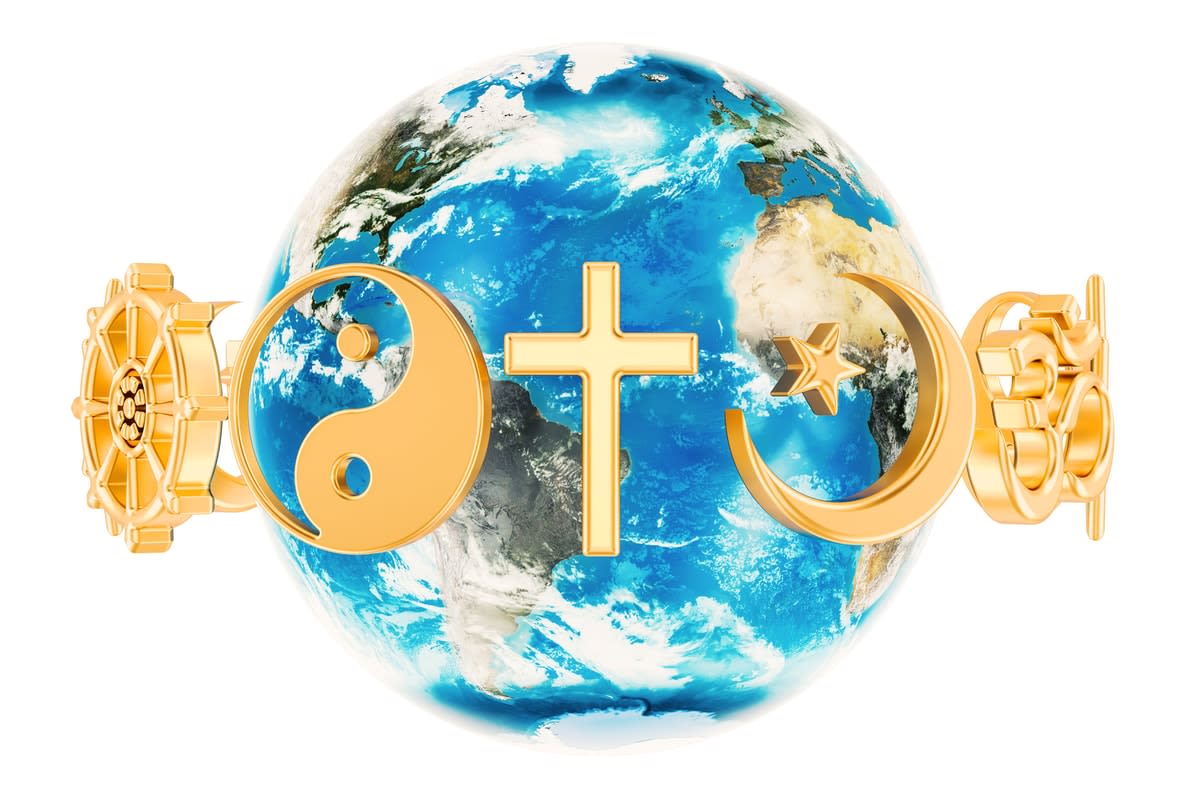
In the discussions regarding the challenges of the Religious Discrimination Bill, the discourse about the role of religion in public life is gaining momentum. An important conversation has been opened about religion, where it belongs, and whether it’s still relevant.
As we go down the rabbit hole and start exploring what religion means in our society, we need to also cast our eye towards spirituality. Our society will benefit from making spirituality a part of the discussion, because it will mean we’re able to share differing perspectives on the topic by creating a safe space.
Religion and spirituality are often intertwined with no clear line separating the two. One way to think about religion and spirituality relates to going ‘outward’ and ‘inward’ , respectively. Here, ‘outward’ refers to institutionalised beliefs, whereas ‘inward’ refers to a personal quest for meaning and purpose.
Having come from a Hindu background and being a researcher of spirituality, I find myself in this space of being spiritual and religious, while for some, spirituality is something completely separate – in other words, people who are spiritual but not religious.
Spirituality is more prevalent than we think
Overall, there’s a need to think about spirituality, whether it’s with or without religion.
What I’m referring to here concerns spirituality as one’s beliefs about life, and how to exist in this world with this belief.
People subscribe to their particular beliefs or follow certain ways of life, which may be showing kindness to another person, or just being a good human being. As a result, their actions are informed by their beliefs, principles, or personal philosophies on life. It’s how one is in the world when interacting with others; it’s where one draws their strength to face challenges.
All of these factors are underpinned by one’s spirituality.

The presence of spirituality within our society is more real than we think. However, at times, due to the ambiguous nature of spirituality and its association with religion, spirituality is perceived as something to fear or avoid.
For those who are spiritually-inclined, it’s an integral part of their lives, and influences everything they do. This means their spirituality is fluid and flowing. Therefore, closing off spirituality within people’s personal lives due to misunderstandings or the fear of offending others doesn’t enable them to live authentically.
Spirituality in the Indigenous context
In the Australian context, spirituality has long been an important part of Indigenous culture. Indigenous spirituality relates to the connection to land, sea and sky, and the ancestral spirits that are the source of existence.
In this way, the interconnectedness between the natural elements – the land, and the animals inhabiting the land – forms an important aspect of Indigenous spirituality. This spiritual landscape of the Indigenous way of life provides a perfect backdrop to consider the topic of spirituality in the public discourse.
Further, in our multicultural society, which includes the bricks of various religious beliefs and affiliations, spirituality can act as cement that holds and strengthens the wall.
Read more: What we can learn from Indigenous Australians about living in harmony with the country
An overview of the Australian Census data about religious affiliation shows the need to consider spiritual beliefs within the population. According to census data in 2016, 52% of the population is affiliated with the Christian religion, while 8.2% is affiliated with other religious beliefs. In addition, 30.1% of people chose the ‘No religion’ category.
According to the Australian Bureau of Statistics website, ‘No religion’ includes ‘Secular Beliefs and Other Spiritual Beliefs and No Religious Affiliation’. Thus, the fact that ‘No religion’ is attributed to the second-largest sector behind Christianity draws attention to the place of spirituality in the public sphere.
A chance to see different perspectives
An openness to talk about spiritual beliefs presents an opportunity for a genuine dialogue. This can be created by talking about one’s beliefs as their own truth and reality without expecting others to follow in the same way.
This is similar to what Anna Simpson suggests, concerning new ideas that bring different ways of thinking and understanding into one’s context.
It’s through sharing ideas of spirituality that it’s possible to see differing perspectives and ways of being in this world. Open conversation about spiritual beliefs will help avoid misunderstandings about other people’s beliefs.
There’s everything to gain from these discussions, as they’ll create richer social interactions. Moreover, exchanging difficult ideas in this way will lead to open communication, which will in turn support harmonious communities.





